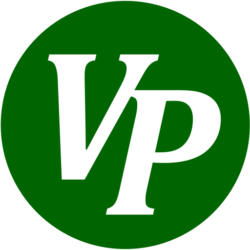The patent-related services we provide to our clients include:
- Developing and executing prosecution strategies not only to protect a client’s products, but also to analyse those of its competitors to help ensure that the client realizes value from its intellectual property assets;
- Patent, Europatent, PCT and SPC Application Preparation and Prosecution;
- Advise on whether a patent can be granted;
- International patent protection and national phases;
- Civil litigation at both the trial and appellate levels, including infringement and dilution cases, counterfeiting, grey-market goods, false advertising, and cyber squatting;
- Industrial Property Office and European Patent Office litigation, including oppositions and cancellation proceedings;
- Preparing and negotiating licenses, assessing the licensing value of competitors’ patents, and guiding the client in the decision to license;
- Monitoring the field to know when a client needs a clearance opinion or has a potential interference issue. These efforts can help direct the client in research and development areas that minimize patent obstacles;
- Providing counsel on business-related matters, including antitrust and competition issues;
- Advising on potential litigation strategies, and, when necessary, deploying experienced trial and appellate teams;
Our major area of endeavor is patent application work, including patent searching, preparation and filing of patent applications in the Czech Republic Industrial Property Office in the European Patent Office and through Patent Cooperation Treaty (PCT).
Whoever invents or discovers any new and useful process, machine, manufacture or composition of matter or any new and useful improvement thereof may obtain a patent.
Inventions which are new, involve an inventive step, and are suitable for industrial application” may constitute the object matter of a patent.
It is generally only through patent protection that others can be prevented from copying one’s inventions. Our goal is to obtain the best possible patent protection for our clients at a reasonable cost.
Our firm have the technical expertise in many diverse areas of today and tomorrow to help our clients protect their intellectual property.
We can file for patents abroad. We also do a significant amount of work for patent firms and other clients in foreign countries who need patent representation in the Czech Republic or in the European Community
We will work with you to determine the optimum strategy for obtaining protection. This includes advice concerning the use of the European Patent Convention (EPC) and the Patent Cooperation Treaty (PCT) in order to defer costs and maintain the maximum flexibility in selecting the countries where protection is to be sought. We also offer a full “national phase” service in all member states of the EPC for clients seeking patent protection through that Convention.
We have technical specialists in virtually every field where patents may be obtained. We can also advise on analogous rights and know-how in such areas as computer software, bio-tech, plant patent, utility model, copyright and design right issues.
Small Improvements Can Have a Large Impact!
